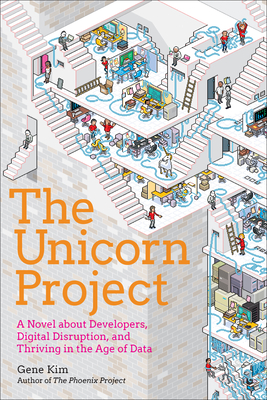What do you think?
Rate this book


352 pages, Hardcover
First published November 26, 2019
What comes to mind here is for example how in The Goal the protagonist Alex Rogo slowly discovers "Drum-Buffer-Rope" while experimenting with different ways to keep a group of boy scouts together on a hiking trip, especially when one of the kids can't keep up with the rest of the group.